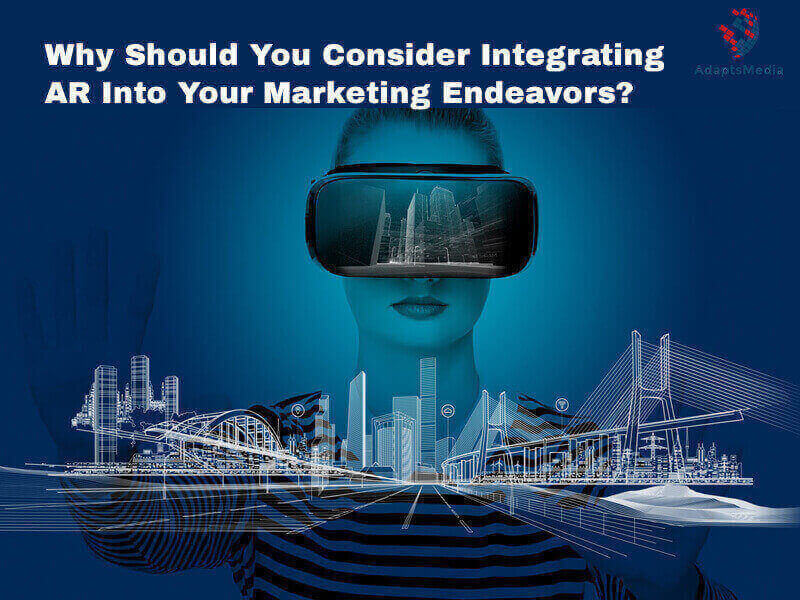The modern market is driven by public interest and growing trends among the global customer base. Experts base their marketing strategies around what the consumers demand. With the introduction of new kinds of technology, these demands change.
A vital part of a business’s marketing campaign is to remain up-to-date with all the latest trends in the market. As customer trends and technology continue to evolve, augmented reality (AR) is becoming a central part of the marketing strategy.
Theoretically speaking, AR is a technology that overlays digital images over the real-time environment of the user. The primary objective is to give an immersive and real experience to the users. Like virtual reality (VR), AR became instantly popular in the fashion and healthcare industries.
Role of Augmented Reality in Marketing
Customers always crave an immersive and engaging shopping experience. Earlier, you had to use trial rooms to try out your preferred clothes before making a purchase. Similarly, you had to take a test drive while buying a car. These indicate that customers have an affliction towards testing and trying out the product before buying it.
With online shopping, this wasn’t possible. This was before AR made a mark in the marketing industry. Businesses are now aggressively using AR to show customers how to use their products or services before making a purchase. The best thing is that the technology has evolved so much that customers can experience it directly from their smartphones or web browsers.
How is AR Boosting Businesses?
Implementing AR has now become a primary marketing technique for most businesses planning to achieve digital success. Here’s how AR is influencing purchasing decisions:
1. Augmented Try and Buy
Many customers refrain from online shopping because they cannot feel the product before they buy it. AR is playing a pivotal role in addressing this issue. Augmented reality provides the customer with a real-time feel of the product and services.
A classic example of such a marketing strategy is L’Oréal’s makeup app. This app uses AR to let the customers see how the product would look on them. After the introduction of AR, L’Oréal’s witnessed a massive surge in customer engagement.
2. Augmented Product Assistance
The augmented product assistance feature allows users to scan products and initiate an AR experience designed either to give additional product information or a unique product experience that can eventually compel customers to make a purchasing decision.
For example, some theatres use AR to give an augmented view of the screen from different seats. The customers can, therefore, have an idea of the view of the screen from their preferred seat numbers before they make the bookings.
3. Augmented Branding Components
AR allows businesses to integrate the technology with business cards, brochures, instruction manuals, etc. Customers scan the code on the relevant branding material to experience the pros and cons of the product through augmented reality.
Some companies also use augmented reality in their instruction manuals. The users can scan the code on the manual, and it’ll redirect them to an AR experience that would visually explain to them the different components of the product they have purchased.
4. Standing Out in the Market
Despite the effectiveness of AR in marketing, not all businesses are reaping its benefits. As a result, customers are often deprived of augmented reality experiences.
With AR, the chances are high that it’ll create a buzz around your product and services. Not long will pass before your brand visibility is boosted, making a tremendous positive impact on your overall business.
5. The Future of Augmented Marketing
Despite AR’s huge success, it is still considered a relatively new concept in the marketing world. So the question remains – is augmented reality a short-term trend, or is it going to end up as one of the most prolific and long-lasting marketing techniques? The facts speak for themselves.
The fusion of AR into social media platforms like Facebook, Snapchat, and Instagram is gaining momentum. As we continue to adopt digitization, AR is only going to revolutionize marketing. Considering how much AR has become a part of our social media routine now, it is clear that augmented reality will become an integral part of our lives. And social media managers, marketing experts, and ambitious brands are going to reap all the benefits.
Don’t miss out on the opportunity to gain a competitive edge. Contact our team for expert assistance.

